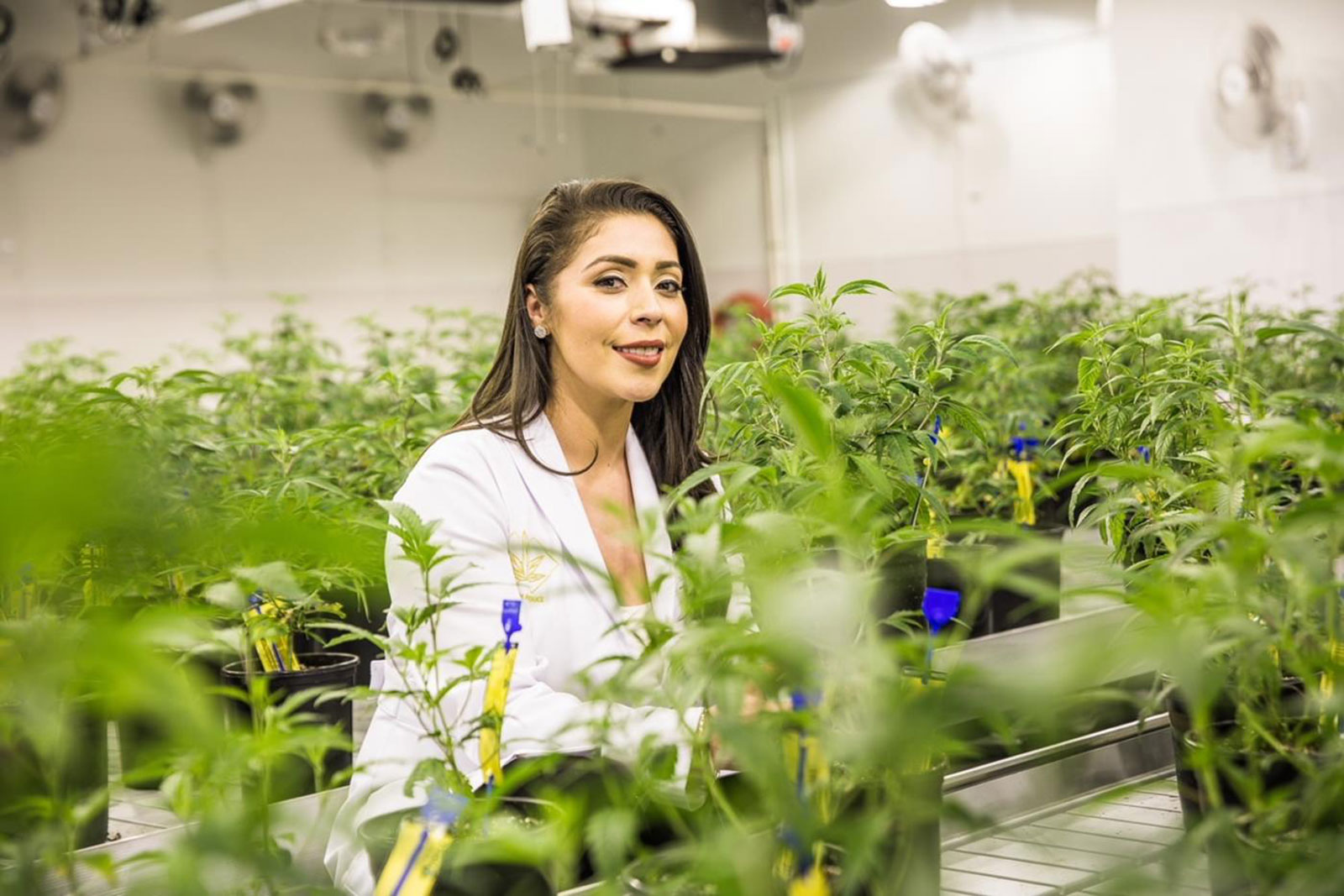Priscilla Vilchis is an absolute powerhouse. It’s clear from the way she talks about herself and her business—confident and succinct—and in the way she’s carved space for herself in the rapidly growing world of medical marijuana, a world historically dominated by men.
From the very beginning of her cannabis career, Vilchis has made headlines for being the first woman of color to be awarded licenses to cultivate and produce medical and recreational marijuana in the state of Nevada. Vilchis is the founder and CEO of Premium Produce, a company that grows cannabis and produces its own brand of cannabis-infused products, in a massive cultivation and laboratory facility in Las Vegas.
Vilchis, who first broke into the industry in 2013, experienced success so fast you’d think it was easy, but this is far from the truth. Vilchis needed to succeed, because her mission was based around something much more important than fiscal gain. Before becoming the “Hollyweed Queen” (she operates out of Nevada, but grew up in Los Angeles), Vilchis worked as a consultant in the health care industry, helping physicians navigate the complexities of insurance policies and regulations. This is where she was able to see the impact of a growing epidemic. “I saw the opioid epidemic crisis [from] working with physicians,” Vilchis begins. “I was able to see patients come in, one day in pain, physicians [treat] their pain and prescribe meds, and fast forward four months: patients are aggravated, upset, they want their meds. It really just opened my eyes, and it made me want to find an alternative.”
According to the Centers for Disease Control and Prevention (CDC), overdose deaths from prescription opiates were five times higher in 2017 than in 1999. The U.S. Department of Health and Human Services declared a public health emergency in 2017 to help combat the epidemic. Vilchis believes medical marijuana is something that can help.
And she’s right: A May 2018 article on Harvard Medical School’s blog examines two recent studies from JAMA Internal Medicine that found a lower rate of opiate prescriptions in states where medical marijuana has been legalized. “One of the studies, a longitudinal analysis of the number of opioid prescriptions filled under Medicare Part D, showed that when medical marijuana laws went into effect in a given state, opioid prescriptions fell by 2.21 million daily doses filled per year. When medical marijuana dispensaries opened, prescriptions for opioids fell by 3.74 million daily doses per year,” the article states.
Vilchis used her experience working within the constraints of an industry with increasingly strict regulations to branch out into the world of medical marijuana. “Because I learned [how to operate in a] highly regulated industry, […] it was easy for me to take that same delicacy and to make sure I was delicate with everything I did in this new industry,” Vilchis says. Her products bring relief to an increasingly larger pool of patients—those who suffer from chronic pain or other illnesses, like cancer. “That’s what our products are geared towards—mainly towards pain relief, anxiety, inflammation,” she says. Her best-selling product is the full-spectrum CBD tincture, which is of special interest to people with cancer. “People who have been undergoing chemotherapy love my [CBD tincture], because it’s given them an appetite to eat again, and they fall asleep [more easily],” she says.
Vilchis’ main goals for the future are to help the movement of making marijuana reimbursable by insurance carriers, because it can help relieve the suffering of so many—from those with chronic pain, depression, or anxiety, to those fighting cancer, and more. “It feels great to know that we’ve given [people this] option as an alternative,” Vilchis says.







